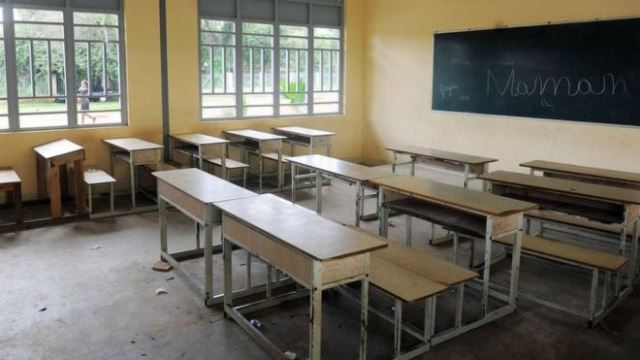As the closure of schools due to the COVID-19 pandemic continues to exacerbate the learning crisis across the globe, a report says no fewer than 700 million students are now studying from home.
This is in the face of huge uncertainties, with families and schools having to navigate options of hybrid and remote learning, or no schooling at all, said a report by the World Bank.
- Buhari okays 6-month jail for COVID-19 protocols violators
- Deadly second wave of COVID-19 and youth vulnerability
It said the extended school closure, along with the economic downturn, is a twin unprecedented shock to education.
“Due to learning losses and increases in dropout rates, this generation of students stands to lose an estimated $10 trillion in earnings or almost 10 per cent of global GDP, and countries will be driven even further off-track to achieving their Learning Poverty goals, potentially increasing Learning Poverty levels to 63 per cent,” the report said.
The report tagged, ‘Urgent, Effective Action Required to Quell the Impact of COVID-19 on Education Worldwide’, said in the vast majority of countries, there is no end in sight to this uncertainty.
“Early evidence from several high-income countries has already revealed learning losses and increases in inequality,” the report said.
It also reported that “in all countries in the world, there are immense differences in what rich and poor students’ experience.

“COVID-19 poses an even higher risk to girls’ education and well-being, as girls are more likely to drop out of school and are also more vulnerable to violence and face child marriage and adolescent fertility.
“Vulnerable groups such as children with disabilities, ethnic minorities, refugees, and displaced populations are also less likely to access remote learning materials and to return to school post-crisis.”
- Says tertiary education in crisis
The report also noted that the tertiary education system is in a deep crisis, with 220 million tertiary education students impacted by closures of campuses globally.
“The tertiary education system is critical for countries’ growth. It is too soon to know the full impact on the declines and decreases in enrollment rates due to the pandemic, but severe losses of current and potential future students are expected,” the report said.
Also, unprecedented disruption was reported for Technical and Vocational Education and Training (TVET).
According to a survey, 90 per cent of respondents reported a complete closure of TVET centres in their countries as the continuity of practical skills training as well as assessment and certification of practical skills has been hit particularly hard due to social distancing measures.
“As a result, this generation of students, and especially the more disadvantaged, may never achieve their full education and earnings potential. This is not acceptable, and urgent and effective action is required to address these differential learning losses, which is critical to moving forward so that these gaps don’t widen,” the report said.
- World Bank supports education in 62 countries
Meanwhile, the World Bank is supporting COVID-19 response investments in 62 countries, covering the entire cycle from early childhood to higher education.
The report said: “The bank’s overall new commitments in education during the last fiscal year reached $5.3 billion, the largest figure ever, and expects to add another $6.2 billion this year. Our active portfolio surpasses $20.6 billion.”
In reaction, an educationist, Michael Ojonugwa, said an increase in learning poverty is expected with the developing country bearing the highest brunt.
“Students do not have enough time to study and cover the required syllabus and carry out all the required activities that are supposed to help develop and increase their learning pattern because of the pandemic, so there will definitely be a deficit in learning no matter how much the school tries to teach them, because of restrictions,” he said.

 Join Daily Trust WhatsApp Community For Quick Access To News and Happenings Around You.
Join Daily Trust WhatsApp Community For Quick Access To News and Happenings Around You.

